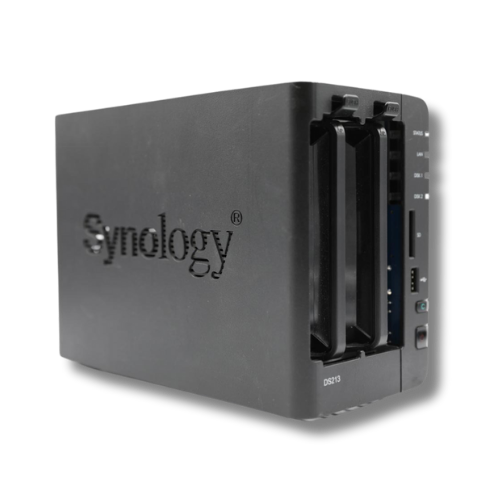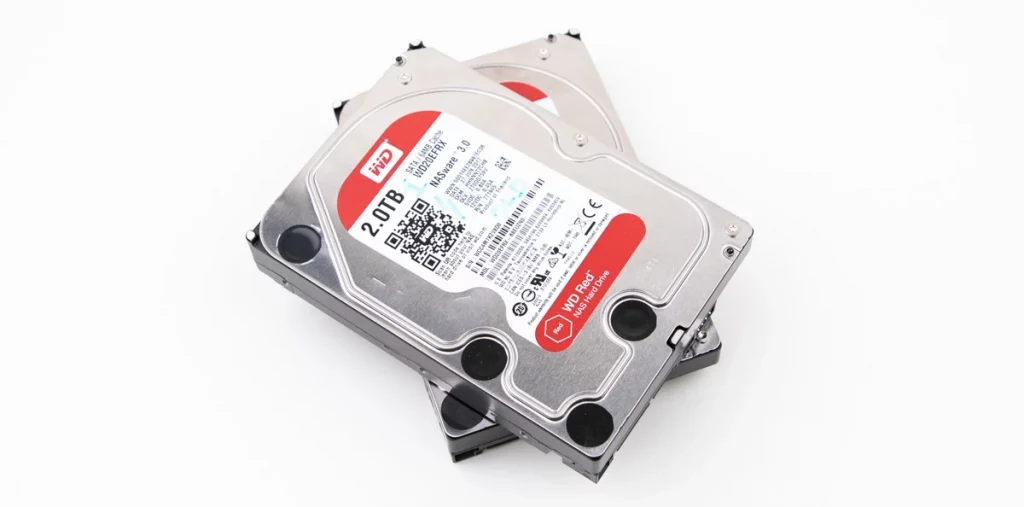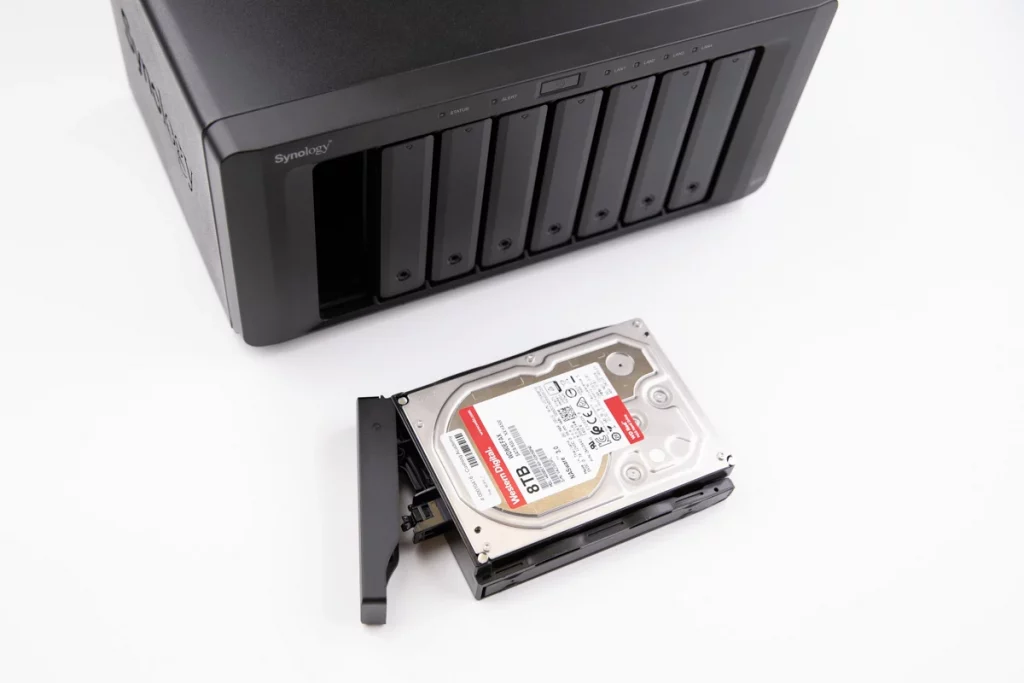NAS (Network Attached Storage) systems are widely used for data storage and are becoming increasingly popular due to their large storage space and convenience. However, NAS failure is a common issue that can lead to the loss of important files. In this blog, we will explore the most common causes of NAS data loss and what you can do to prevent it.
Reasons for NAS Failure and Data Loss
While Network Attached Storage (NAS) devices are engineered to be reliable, several factors could result in failure and consequent data loss. Factors include hardware malfunctions, software glitches, user errors, and environmental issues like power surges or physical damage.
Voltage Fluctuations
Voltage fluctuations are one of the most common causes of NAS data loss. NAS devices are vulnerable to voltage spikes and drops, which can cause hardware failures and corrupt data stored on the system. It is important to use a surge protector and an uninterruptible power supply (UPS) to prevent this.
Accidentally Deleting Files
Accidentally deleting files is another common cause of NAS data loss. This can happen if you accidentally delete a file or perform formatting while using the operating system.
It is important to back up your NAS data regularly to avoid this type of data loss scenario.
File System Corruption

File system corruption is another cause of NAS data loss. This can occur if the file system on the NAS server becomes corrupted due to a hardware failure, software glitch, or human error. It is important to check the file system regularly, so this kind of failure and data loss can be noticed on time.
Incorrect RAID Configuration
Incorrect RAID configuration is another reason for NAS data loss. RAID (Redundant Array of Inexpensive Disks) is a technology that provides data redundancy by using multiple disks to store the same data.
However, if the RAID configuration is incorrect, it can lead to data loss. It is critical to configure the RAID parameters carefully and to check the RAID system for any issues regularly.

NAS Drive Failure
When a disk drive inside the NAS fails, it can result in data loss or corruption, especially if it is part of a RAID system.
The NAS system requires continuous monitoring to avoid severe consequences of its failure and data loss on time.
If you experience NAS data loss, it is important to act quickly and seek professional help.
Many data recovery services are available that can help you recover your lost data. These services use specialized methods to recover data from damaged or corrupted storage devices.
Choosing a reliable and experienced data recovery service is necessary, as some services may cause further damage to your NAS system or storage devices, making it even more difficult to recover your data. Before you choose a data recovery service, it is recommended that you research its reputation, expertise, and the methods it uses to recover data.
What happens when NAS fails
While NAS devices are generally reliable, like any technology, they can fail. In the event of a failure, it is essential to have a backup plan in place. Some NAS systems offer data redundancy through RAID configurations, but it is still recommended to regularly back up your data to an external source for added security.
If a NAS fails due to hardware or software issues, it is recommended to contact the manufacturer for support and potentially seek professional help if needed. With proper maintenance and backup strategies in place, NAS failures can be minimized, ensuring the safety and accessibility of your data.
Signs of NAS Failures
Identifying early signs of NAS failures is key to preserving data integrity and access. While NAS systems are designed for reliability, they are not immune to problems. Here are some signs that may indicate a NAS device is failing:
Slow Performance
If you notice slower-than-usual file transfers or access, it could be a sign of hardware failure.
Network Disconnection
Frequent disconnects from the network or connection issues can point to potential NAS problems.
Strange Noises
Unusual noises coming from the NAS device, such as clicking or grinding, may indicate a hardware issue.
Error Messages
Frequent error messages while accessing or transferring files could be a sign of a failing NAS.
Access Times
If it takes longer than usual to access files on the NAS, it could be a sign of failing hardware.
Increased Heat Output
While NAS devices generally produce heat during operation, excessive heat could signify that the device is overworking due to failing components.
Data Corruption or Loss
Experiencing corruption or loss of files stored on the NAS without any apparent reason could indicate a problem with the NAS’s storage disks or its file system.
If you notice these symptoms, consider seeking professional help or contacting the manufacturer for support. Consistent maintenance and regular backups are key to preventing failures and safeguarding your data.
Data Loss Prevention for NAS
Preventing data loss is always better than attempting to recover it. To reduce data loss risk on NAS devices, consider these steps:
Regular backups:
Regularly backing up data protects your important files and documents, ensuring you don’t lose valuable information in case of a NAS failure. This proactive approach protects your data from unexpected hardware failures and gives you peace of mind by securing your digital assets.
Power surge protection
It is highly recommended that you protect your Network-Attached Storage (NAS) from voltage fluctuations by using surge protectors and uninterruptible power supplies (UPS). These devices offer critical protection, keeping sudden electrical changes from harming your NAS system’s integrity or functionality. Mitigating these risks helps maintain your system’s reliability and longevity.
Monitoring
Regularly checking your Network Attached Storage (NAS) system’s health is key to keeping it performing well. By monitoring its operation closely, you can quickly spot any potential issues or early signs of failure. This proactive strategy helps you address problems promptly, boosting your storage solution’s longevity and reliability.
Environmental protection
To keep your NAS (Network Attached Storage) system reliable, maintain it in a clean, dust-free space. Dust leads to overheating and component damage. Also, protect your NAS from physical harm. Accidental impacts can damage hard drives, risking data loss. These steps prevent common issues, maintain performance, and protect your data.
NAS Data Recovery with RAID Recovery Services
RAID Recovery Services is a leader in the data recovery industry, offering superior NAS (Network-Attached Storage) data recovery services throughout the United States. Our technicians are highly trained and experienced in working with all NAS storage devices, from single-drive solutions to enterprise-level arrays.
Our advanced data recovery technology allows us to quickly diagnose the cause of a storage device malfunction and restore lost or corrupted data.
We also recover data from crashed and failed hard drives, solid-state drives, RAID arrays, and other storage media.
We also provide software recovery solutions for Windows and Macintosh operating systems to help you recover documents, photos, music files, databases, emails, and more.

At RAID Recovery Services, we understand the importance of retrieving your valuable information in a timely manner. That is why our technicians work around the clock to ensure that your data is recovered as soon as possible. We are committed to providing excellent customer service, and our knowledgeable support staff is always available to answer any questions or concerns you may have.
For more information about our NAS data recovery services, please do not hesitate to contact us today. We look forward to helping you recover your valuable data quickly and securely. Get in touch by filling out the form below or calling us at 866.990.8999.
Frequently Asked Questions
What happens when NAS fails?
When NAS fails, data inaccessibility or loss may appear. Regular backups and redundancy measures are recommended to mitigate this risk.
Is SSD bad for NAS?
SSDs are not bad for NAS and can offer faster data access speeds and reliability. However, they are more expensive than HDDs.
How do I secure my NAS?
Secure your NAS by using strong passwords, enabling encryption, updating the NAS firmware regularly, and restricting unnecessary network access.
Does NAS affect Internet speed?
NAS primarily affects local network speed. However, if you access NAS remotely or sync data online, it can impact your Internet speed.
Why do NAS drives fail?
NAS drives can fail due to several reasons including mechanical wear and tear, overheating, firmware corruption, power surges, and improper handling. Regular maintenance and monitoring can reduce these risks.
How frequently does NAS fail?
NAS systems are usually reliable, yet failures can happen due to hardware malfunctions, software problems, or environmental conditions. Regular maintenance and monitoring can reduce failure risks.